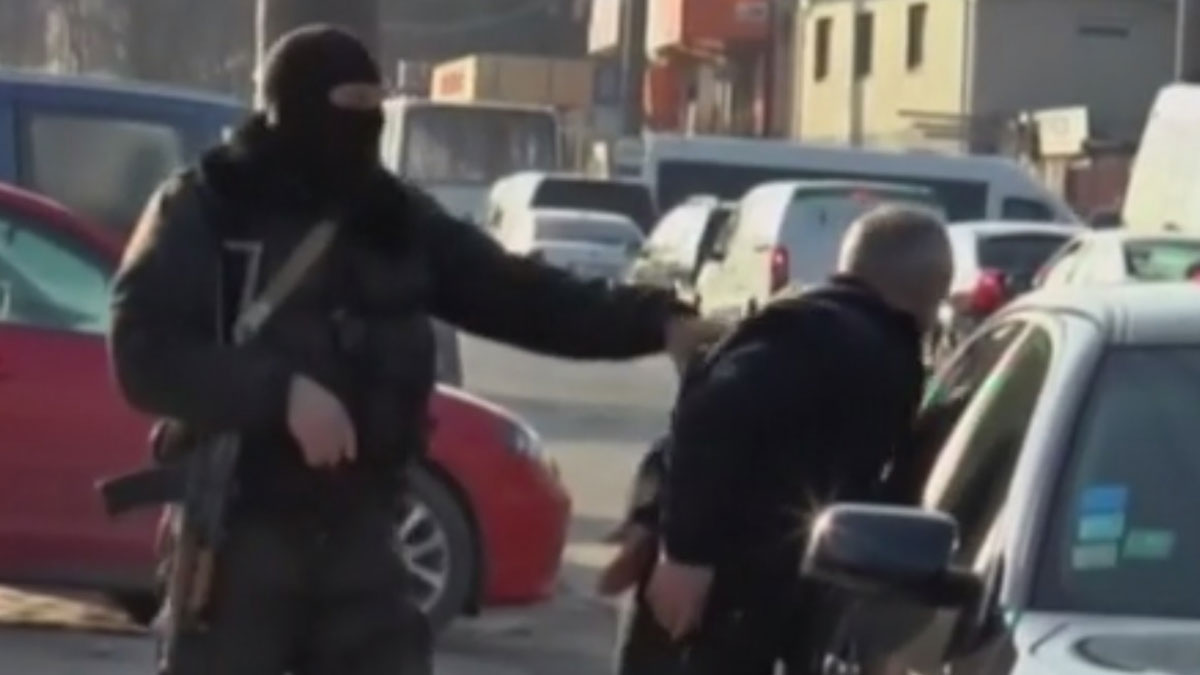'Russian gangs' attempting to sell nuclear material to Islamic State
FBI and Moldovan police have foiled four plots by smugglers looking for buyers who are enemies of the West

A free daily email with the biggest news stories of the day – and the best features from TheWeek.com
You are now subscribed
Your newsletter sign-up was successful
Criminal gangs with suspected Russian links are attempting to sell radioactive material to extremists in the Middle East, including Islamic State militants.
FBI agents working alongside investigators in Moldova have foiled four separate plots by smugglers specifically seeking out buyers who are enemies of the West, an AP investigation has revealed.
"In the age of the Islamic State, it's especially terrifying to have real smugglers of nuclear bomb material apparently making connections with real buyers," said Matthew Bunn, a Harvard professor who led a secret study for the Clinton administration on the security of Russia's nuclear arsenal.
The Week
Escape your echo chamber. Get the facts behind the news, plus analysis from multiple perspectives.

Sign up for The Week's Free Newsletters
From our morning news briefing to a weekly Good News Newsletter, get the best of The Week delivered directly to your inbox.
From our morning news briefing to a weekly Good News Newsletter, get the best of The Week delivered directly to your inbox.
Authorities involved in the undercover operations in the impoverished Eastern European country shared wiretaps, videotaped arrests, photographs of bomb-grade material, documents and interviews with AP journalists to demonstrate the extent of the nuclear black market.
"This represents the fulfilment of a long-feared scenario in which organised crime gangs are trying to link up with groups such as the Islamic State and al-Qaida — both of which have made clear their ambition to use weapons of mass destruction," says AP.
In one case, smugglers promised to provide 10kg or uranium, a fifth of what was used over Hiroshima, in 1kg packages costing £24m each.
Another involved a Russian man authorities believe to be an officer with Russia's FSB intelligence agency, known as 'The Colonel'. He attempted to sell bomb-grade uranium and blueprints for a dirty bomb to a Sudanese man, but managed to escape capture when the plot was foiled by police.
A free daily email with the biggest news stories of the day – and the best features from TheWeek.com
The criminal investigation was plagued by serious shortcomings, AP reports. Kingpins got away and those arrested escaped lengthy prison sentences, sometimes quickly returning to nuclear smuggling.
The FBI and the White House refused to comment on the investigation and the US state department said it would not comment on specific details, but a spokesperson said Moldova has taken "many important steps" to strengthen its counter-nuclear smuggling capabilities.
But Constantin Malic, one of the main Moldovan investigators, warned: "We can expect more of these cases.”
“As long as the smugglers think they can make big money without getting caught, they will keep doing it."
-
 How the FCC’s ‘equal time’ rule works
How the FCC’s ‘equal time’ rule worksIn the Spotlight The law is at the heart of the Colbert-CBS conflict
-
 What is the endgame in the DHS shutdown?
What is the endgame in the DHS shutdown?Today’s Big Question Democrats want to rein in ICE’s immigration crackdown
-
 ‘Poor time management isn’t just an inconvenience’
‘Poor time management isn’t just an inconvenience’Instant Opinion Opinion, comment and editorials of the day
-
 US, Russia restart military dialogue as treaty ends
US, Russia restart military dialogue as treaty endsSpeed Read New START was the last remaining nuclear arms treaty between the countries
-
 What happens now that the US-Russia nuclear treaty is expiring?
What happens now that the US-Russia nuclear treaty is expiring?TODAY’S BIG QUESTION Weapons experts worry that the end of the New START treaty marks the beginning of a 21st-century atomic arms race
-
 Epstein files topple law CEO, roil UK government
Epstein files topple law CEO, roil UK governmentSpeed Read Peter Mandelson, Britain’s former ambassador to the US, is caught up in the scandal
-
 Iran and US prepare to meet after skirmishes
Iran and US prepare to meet after skirmishesSpeed Read The incident comes amid heightened tensions in the Middle East
-
 Israel retrieves final hostage’s body from Gaza
Israel retrieves final hostage’s body from GazaSpeed Read The 24-year-old police officer was killed during the initial Hamas attack
-
 China’s Xi targets top general in growing purge
China’s Xi targets top general in growing purgeSpeed Read Zhang Youxia is being investigated over ‘grave violations’ of the law
-
 Panama and Canada are negotiating over a crucial copper mine
Panama and Canada are negotiating over a crucial copper mineIn the Spotlight Panama is set to make a final decision on the mine this summer
-
 Why Greenland’s natural resources are nearly impossible to mine
Why Greenland’s natural resources are nearly impossible to mineThe Explainer The country’s natural landscape makes the task extremely difficult